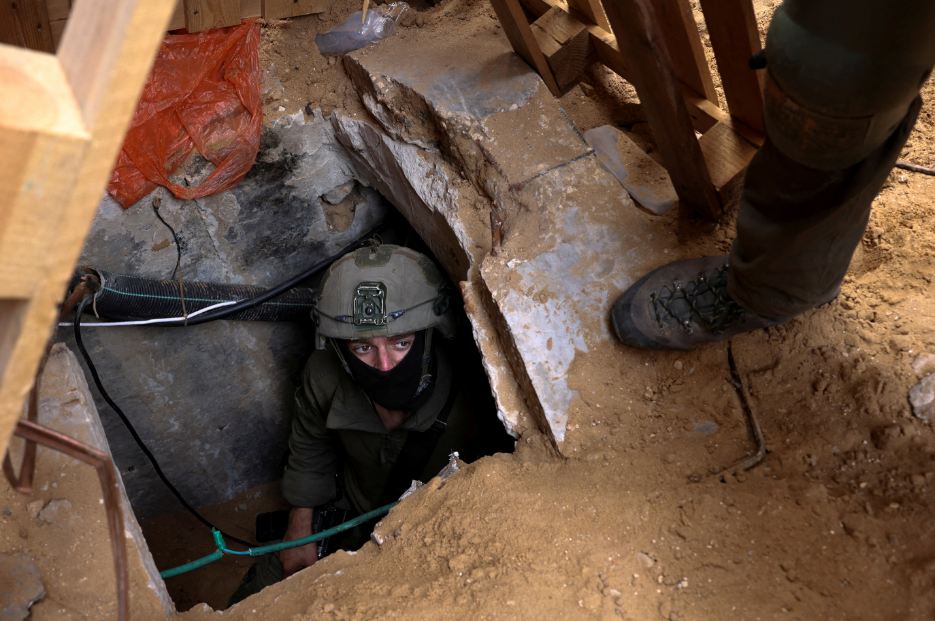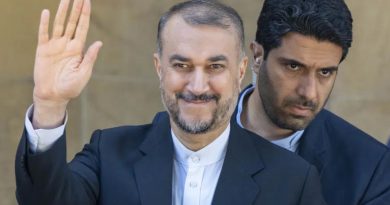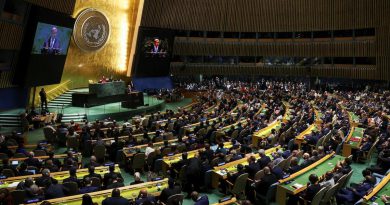The Qatari Playbook: Influence Operations in Media, Politics, and Diplomacy
Qatar is conducting a multi-pronged, global influence campaign to expand its regional and international clout.
Recently, it was reported that Israeli security officials are investigating the possibility that Qatari elements are behind a wave of online posts in recent weeks designed to cast doubt on the stability of the peace agreement between Israel and Egypt. These posts, widely circulated in Israeli media, focused on Egypt’s military buildup and increased troop deployment in Sinai — a move that could be seen as violating the peace treaty.
However, a civil society group called “Fake Reporter,” which tracks malicious online activity, found a sharp rise in content on social media portraying Egypt as an increasing threat to Israel. Some of the videos and images used to support these claims were actually from an Egyptian military drill held in 2018.
While it’s true that Egypt has been enhancing its military capabilities, it seems there’s a deliberate attempt to frame this as a threat to Israel. The suspicion is that this disinformation campaign may be aimed at weakening Egypt’s role as a mediator, particularly with the U.S., in Middle Eastern affairs — and especially in Gaza-related matters.
If Qatar is indeed behind this disinformation, it would be yet another link in its vast influence network — one that’s drawn increasing attention lately, both due to the potential collapse of the Assad regime in Syria and Qatar’s involvement in mediation efforts around hostage negotiations. In the Israeli context, reports have surfaced about Qatar hiring Israeli PR experts — including advisors to Netanyahu — to improve its image in global public opinion and in the Jewish world.
This isn’t a new tactic for the small Gulf emirate. While research on influence campaigns over the past decade has focused mostly on Russia, China, and Iran, Qatar has largely flown under the radar — unjustly so. A series of investigations by Reuters since 2019 exposed “Project Raven,” a secret UAE-led operation that hired former NSA agents to spy on targets in Turkey, France, Yemen, Iran, Qatar, and Israel.
Leaked information from that project revealed the extent of Qatar’s global influence operations — supporting both terrorist groups and friendly regimes in the West, while also working to destabilize governments across the Arab world.
For example, Qatar played a role in toppling Gaddafi’s regime in Libya and was the first to recognize the rebel government. It also supported Tunisia’s post-revolution regime after the fall of Ben Ali, and has actively backed Syrian rebels with weapons and funding. Traditionally, Qatar has pursued a proactive agenda in the Arab world and has recently intensified efforts to position itself as a leader of the Sunni world. To that end, it engages in various influence channels:
Influence Among Decision Makers
Qatar commonly uses financial incentives to sway influencers and policymakers. Beyond the bribery scandals uncovered in Project Raven, French authorities recently indicted Nasser Al-Khelaifi — a senior official in Qatar’s Investment Authority and president of Paris Saint-Germain football club — for allegedly using bribes to manipulate business decisions.
Similarly, U.S. Senator Bob Menendez was accused of accepting bribes from both Qatar and Egypt to advance their interests. Qatar also funds trips for politicians and journalists to Doha — a form of soft power. In 2018, federal investigations began in the U.S. into whether lobbyists and former government officials working for Qatar had violated lobbying laws. That year, 250 people close to President Trump were flown to Doha at Qatar’s expense. Likewise, Rep. Ilhan Omar was flown to Qatar during the 2022 World Cup, and UK Prime Minister Keir Starmer admitted to a similar Qatar-sponsored trip when he was still a member of Parliament.
Just last week, the European Network of Aviation Associations (ENAA) warned the EU’s transport department about a possible aviation deal with Qatar, raising corruption concerns.
Financial Influence
Qatar’s wealth oils the wheels of influence in the U.S. Congress — with reports in 2018 showing that 59 members received donations from Qatar. Think tanks in Washington also benefit, making Qatar a major funder of those who whisper in the ears of decision-makers. In 2022, it was revealed that Gen. John Allen, then-president of the Brookings Institution, was under investigation for secretly lobbying for Qatar after retiring from the military — earning over $1 million in fees. He worked alongside Richard Olson, former U.S. ambassador to Pakistan and the UAE, who admitted to participating in the lobbying campaign.
“Qatargate” Scandal in Europe
The Qatargate scandal in the European Parliament revealed that, starting in 2019, Qatar paid Italian MEP Antonio Panzeri and Greek EU Vice President Eva Kaili in exchange for favorable votes. This led to greater scrutiny in Europe over parliamentarians’ trips to Qatar and prompted ethics committees to enhance oversight and limit Qatari influence.
Western Assets and Public Opinion
Qatar also secures influence through investments. It holds major stakes in European corporations like Porsche. Its massive investment in building the U.S. air base at Al-Udeid made it the largest American military base in the Middle East. Qatar also targets American public opinion — in spring 2020, it donated millions in COVID-19 aid to families in Los Angeles, Charleston (South Carolina), and other U.S. cities.
Influence Through Sports
Qatar places immense importance on sports as a tool for influence. Hosting the 2022 FIFA World Cup was the result of a massive lobbying effort — including hiring Israeli PR experts. The campaign continues, with recent reports of Qatari investors aiming to buy the English football club Tottenham and launching their bid to host the 2027 Basketball World Cup. During the 2024 Paris Olympics, Qatari leaders, including the Emir, were prominent guests at the opening ceremony, and Al-Khelaifi even carried the Olympic torch.
Diplomatic Influence
Qatar invests heavily in its image as a regional mediator. Both the Biden and Trump administrations praised its efforts in negotiating the release of American hostages from the Taliban. Doha values this role so highly that its diplomats frequently emphasize Qatar’s neutrality. For instance, the Qatari ambassador to the U.S. wrote op-eds in The Wall Street Journal and Newsweek framing Qatar as an honest broker. Qatar’s foreign ministry spokesperson has echoed this narrative in numerous interviews, including with Israeli outlets like Haaretz and Channel 12. Journalists from The Jerusalem Post and Kan 11 have even been invited to Doha.
Influence in Education
A 2022 study by the U.S. National Association of Scholars revealed that between 2001 and 2021, Qatar donated $4.7 billion to American universities — including Cornell, Georgetown, and Carnegie Mellon — in return for opening Doha branches. Sometimes, this came with conditions, like removing certain course content or cooperating with Qatari media like Al Jazeera. Texas A&M alone received $404 million between 2015 and 2023. (The university has announced plans to shut its Doha campus by 2027 — a move publicly criticized by the U.S. ambassador to Qatar.)
Qatar has become the largest foreign donor to U.S. universities, often without proper disclosure, and a 2020 ISGAP study found a correlation between Qatari funding and pro-Palestinian activism on American campuses.
Supporting Terror-Linked Groups Under a Humanitarian Disguise
Qatar often masks its support for terror-linked entities as humanitarian aid. To retain influence in Gaza, Qatar insisted on delivering aid during the early 2025 ceasefire between Israel and Hamas, including fuel and bulldozers. It pledged $100 million to UNRWA, with $4.5 million earmarked for operations in the West Bank. Qatar also funneled money to Hezbollah through “charities” that provide food, medicine, and education — and used similar “humanitarian” ventures to build ties with the Houthis in Yemen and the Taliban in Afghanistan.
Media Influence
Qatar’s media arm, Al Jazeera, plays a major role in shaping public opinion. It’s the most popular English-language news network in the world after CNN and BBC — and has been accused of acting as a mouthpiece for Hamas and other Islamist groups. Since its founding in 1996, Al Jazeera has provided a platform for Muslim Brotherhood leaders and broadcast divisive content about the Arab world.
Its various branches, including AJ+ in the U.S., continue to influence global narratives. In Gaza, several Al Jazeera journalists were recently found to be affiliated with Hamas and Islamic Jihad, and the channel actively promoted staged events involving Israeli hostages.
Conclusion
Qatar is conducting a multi-pronged, global influence campaign to expand its regional and international clout. Through its vast network of soft power — in diplomacy, media, education, finance, and humanitarian aid — Qatar has become a key player in global affairs. Israel’s current dependence on Qatari mediation regarding hostages forces it to tolerate, and even flatter, one of Hamas’s primary funders — without whom the October 7th attack may not have happened. Qatar is now also helping Hamas recover.
This case illustrates the sophistication of Qatar’s influence strategy — and the urgent need to monitor and defend against it.
Translated in English from Jerusalem Institute of Strategic Studies.



